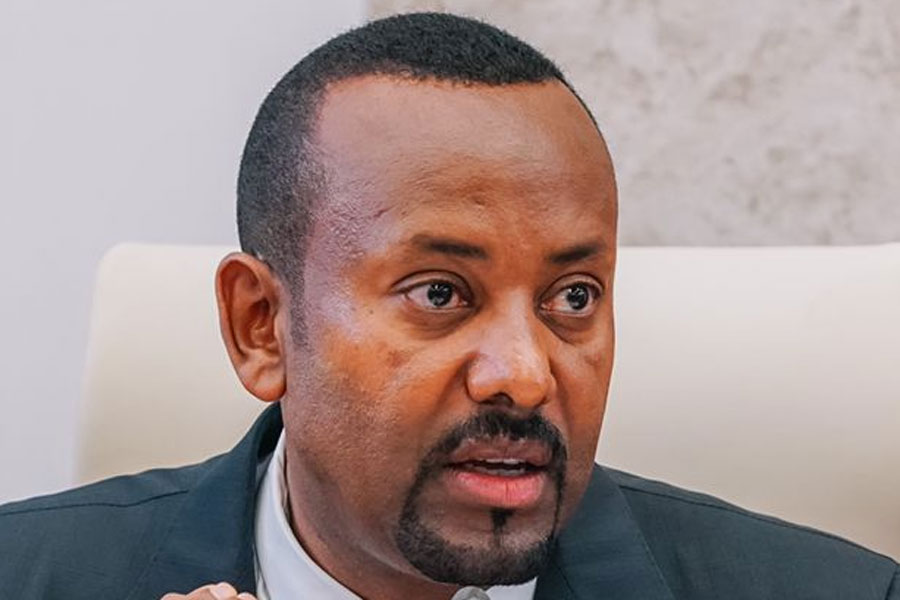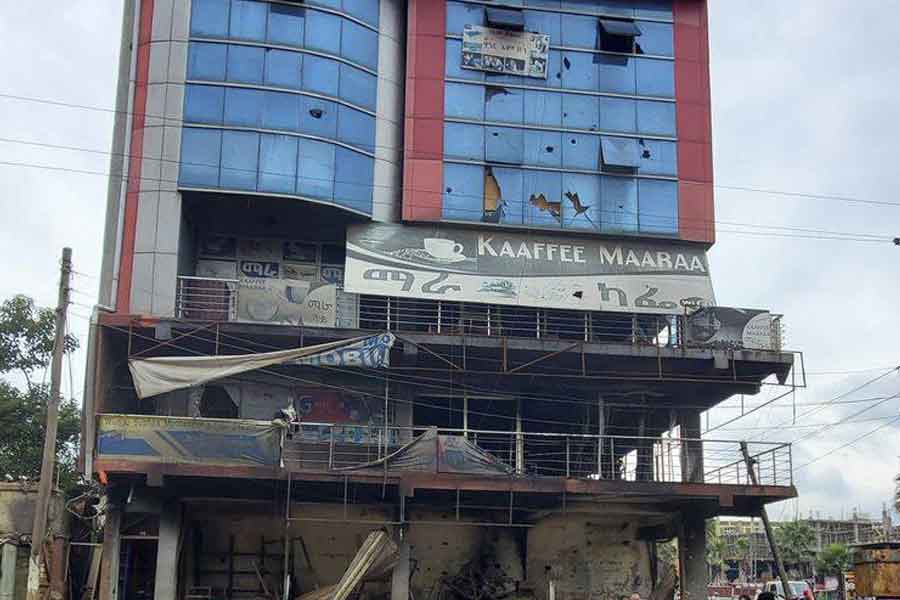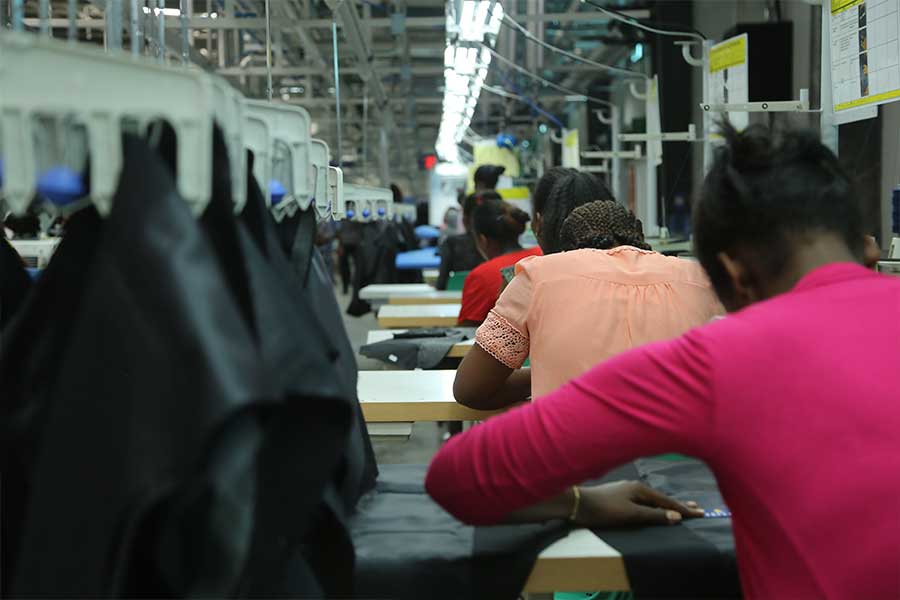
Verbatim | Jan 07,2023
Mar 14 , 2020
By Shewangezaw Seyoum
The chances of violence in the coming election is very high. The only way to mitigate this is to find the political goodwill to adhere to the constitutional order and develop concrete action plans and strategies, writes Shewangezaw Seyoum (swsm02@yahoo.com), a consultant who works at the Industrial Projects Service - a consultancy house under the Industrial Parks Development Corporation. Views expressed here do not represent that of any organization.
The sixth national election, scheduled to take place on August 29, 2020, will be a landmark event. Regardless of the outcome, the consequences will significantly affect the political, social and economic conditions of the country for at least the next decade. Handled properly, the election will further the status and evolution of Ethiopia as a multiparty electoral democracy.
The campaign season has not started yet but accusations and counter-accusations have become rife over the past few months. Opposition parties are regularly complaining that they are unable to hold campaigns and organise. They are also accusing the incumbent Prosperity Party (PP) of continuing to intertwine party and government, tainting the independence and transparency of democratic institutions thought to have been on the right path since the election of Prime Minister Abiy Ahmed (PhD).
The Prosperity Party has also been alleging that some of the opposition parties are in the business of wrecking havoc, threatening the stability of the country and engaging in at best unhelpful and at worst destructive behaviour.
In this environment, we may be inclined to forget that we are in a pre-election season. As August approaches, the competition for political power will heat up. There may be some promise in the strengthening of the security infrastructure, but the absence of effective coalition-building and structural weaknesses - evident in the nationalistic base of political parties – presents a major problem.
In a political terrain characterised by intense partisanship, ideological conflict does not always remain ideological. It will severely harm competition, as parties continue to galvanise their bases using harsh language, maintain poor organisation, lack ideological clarity and have the inclination to resort to violence.
The only way this could change is if the political parties find the goodwill to adhere to the constitutional order and develop concrete action plans and strategies to galvanise their political bases.
During an election season, political parties draft manifestos, electoral policies and programmes. Political parties begin with constitutions that specify their structures, responsibilities, policies, long-term goals, and the qualifications for and duties of membership. With every new election, they develop manifestos that identify the sociopolitical and economic shortcomings of the country, explain how they intend to address them and lobby voters on why they deserve to form a government.
These policies and programmes should not be taken for granted. They are not ad hoc nor a matter of formality. In some countries, leading parties hold annual conferences each summer to explain their prospective policies to members and key stakeholders and to communicate progress made in the past year. In others, party conventions are as much a forum for nomination as an opportunity to chart new policy directions for the parties concerned through carefully drafted keynote addresses delivered by the most promising and articulate members of the organisation.
Few political parties other than PP are currently taking these steps. Indeed, it is hard to deny the advantages incumbency confers. PP, unlike most of the others, commands considerable human and financial resources that enable it to generate party programmes and policies and introduce them to the public. The opposition’s lack of these same resources impacts their ability to develop economic and political programmes, but it is not enough of an excuse for the almost complete disregard for policy writing and debates most have shown.
There is no substitute for democracy as a government system. But it is dependent on democratic institutions, including effective and organised political parties. Political parties are crucial actors in bringing together diverse interests, recruiting and presenting candidates, and developing competing policy proposals that provide voters with a choice. Ethiopian political parties have consistent weaknesses in party organisation, recruitment, funding and policy formulation that are further exacerbated by diverse and complex political and developmental challenges.
Ethiopian political parties, in the firm belief that it is possible to achieve electoral victory by adhering to the constitutional order, should work to address some of their own shortcomings, at least as much as they are busy accusing one another. This would go a long way in improving the credibility and peacefulness of Ethiopia’s coming national election.
PUBLISHED ON
Mar 14,2020 [ VOL
20 , NO
1037]


Verbatim | Jan 07,2023

Sunday with Eden | Dec 31,2022

Viewpoints | Feb 22,2020

Fortune News | May 29,2021

Sunday with Eden | Nov 09,2019

My Opinion | Feb 20,2021

Editorial | Oct 16,2021

Editorial | Feb 17,2024

Agenda | Oct 24,2020

Fineline | May 04,2019

My Opinion | 132041 Views | Aug 14,2021

My Opinion | 128437 Views | Aug 21,2021

My Opinion | 126364 Views | Sep 10,2021

My Opinion | 123987 Views | Aug 07,2021





Dec 22 , 2024 . By TIZITA SHEWAFERAW
Charged with transforming colossal state-owned enterprises into modern and competitiv...

Aug 18 , 2024 . By AKSAH ITALO
Although predictable Yonas Zerihun's job in the ride-hailing service is not immune to...

Jul 28 , 2024 . By TIZITA SHEWAFERAW
Unhabitual, perhaps too many, Samuel Gebreyohannes, 38, used to occasionally enjoy a couple of beers at breakfast. However, he recently swit...

Jul 13 , 2024 . By AKSAH ITALO
Investors who rely on tractors, trucks, and field vehicles for commuting, transporting commodities, and f...

Jul 12 , 2025
Political leaders and their policy advisors often promise great leaps forward, yet th...

Jul 5 , 2025
Six years ago, Ethiopia was the darling of international liberal commentators. A year...

Jun 28 , 2025
Meseret Damtie, the assertive auditor general, has never been shy about naming names...

Jun 21 , 2025
A well-worn adage says, “Budget is not destiny, but it is direction.” Examining t...

Jul 13 , 2025 . By YITBAREK GETACHEW
The Addis Abeba City Revenue Bureau has introduced a new directive set to reshape how...

Jul 13 , 2025 . By BEZAWIT HULUAGER
Addis Abeba has approved a record 350 billion Br budget for the 2025/26 fiscal year,...

Jul 13 , 2025 . By RUTH BERHANU
The Addis Abeba Revenue Bureau has scrapped a value-added tax (VAT) on unprocessed ve...

Jul 13 , 2025 . By NAHOM AYELE
Federal lawmakers have finally brought closure to a protracted and contentious tax de...